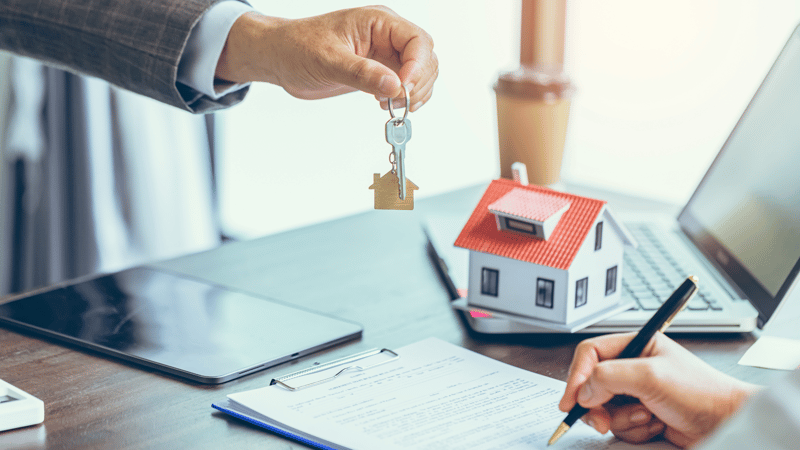Lease renewals are essential for maintaining a steady income and reducing vacancies. With changing tenant expectations and advancements in property management technology, landlords must adopt effective lease renewal strategies to maximize tenant retention. By optimizing lease agreements, improving communication, and offering incentives, landlords can ensure higher lease renewal rates. Here are 15 smart lease renewal strategies to help landlords retain tenants and streamline the renewal process in 2025.
1. Start Lease Renewal Conversations Early
Initiating lease renewal discussions well in advance—typically 90 to 120 days before lease expiration—gives both landlords and tenants enough time to evaluate options. This proactive approach reduces the chances of last-minute decisions that may lead to vacancies. Sending polite reminders and discussing potential rent adjustments or incentives early can make tenants feel valued. It also provides landlords the opportunity to address tenant concerns, making lease renewals more likely. Transparency in these discussions fosters a positive landlord-tenant relationship.
2. Offer Competitive Rental Rates
Rent pricing plays a major role in lease renewal decisions. If a tenant finds similar properties at lower rates, they might consider moving. Conducting market research and analyzing rental trends can help landlords set a competitive yet profitable rate. Instead of imposing steep rent hikes, gradual and justifiable increases are more acceptable to tenants. Offering slight discounts for long-term tenants or bundling services like free maintenance can make renewals more appealing while keeping rental income stable.
3. Enhance Tenant Experience with Smart Technology
Tenants today expect modern amenities that provide convenience and security. Integrating smart home technology—such as keyless entry, smart thermostats, and automated lighting—enhances tenant satisfaction. These features not only make daily life easier but also demonstrate that the property is keeping up with the latest innovations. Smart home improvements can be a major factor in tenant retention, as tenants are more likely to renew their leases if they feel they have access to the latest property technology.
4. Improve Communication with Digital Tools
Effective communication is key to successful lease renewals. Utilizing property management software allows landlords to send automated renewal reminders, manage documents online, and communicate with tenants more efficiently. Digital tools eliminate paperwork, reducing administrative burdens and streamlining the lease renewal process. Additionally, having an online portal where tenants can view lease terms, payment history, and renewal options helps build trust. Quick responses to inquiries and concerns also contribute to a smooth lease management experience.
5. Provide Lease Renewal Incentives
Incentives can be a strong motivator for tenants to stay. Offering perks such as rent discounts, upgraded appliances, or a free month of parking can encourage lease renewals. Simple gestures, like waiving minor rent increases for long-term tenants, can make a big difference. These incentives show appreciation for tenant loyalty and can make renewing a lease more attractive. In competitive rental markets, offering small but meaningful benefits can be the deciding factor in whether a tenant stays or leaves.
6. Maintain and Upgrade the Property
A well-maintained property significantly influences tenant satisfaction and tenant retention. Regular upkeep and timely repairs prevent issues from escalating and make tenants feel valued. Simple upgrades like new flooring, modern fixtures, or freshly painted walls can create a refreshed living space that tenants appreciate. Addressing maintenance requests quickly and investing in necessary property improvements also strengthen the relationship between landlords and tenants, making lease renewal decisions easier for renters who see continuous value in their home.
7. Be Flexible with Lease Terms
A rigid lease structure may push tenants to explore other options. Offering customized lease terms based on tenant needs can make renewal more appealing. Some tenants prefer short-term leases for flexibility, while others seek long-term agreements for stability. Giving tenants options—such as allowing lease extensions for 6, 12, or 24 months—enhances their satisfaction. Providing a month-to-month renewal option at a slightly higher rate can also retain tenants who are undecided, keeping occupancy rates high.
8. Establish Strong Tenant Relationships
Tenants are more likely to renew leases when they feel respected and appreciated. Maintaining open and friendly communication, addressing concerns promptly, and showing genuine interest in tenant needs contribute to a positive rental experience. Simple gestures like holiday greetings, tenant appreciation events, or occasional check-ins can make a difference. A good landlord-tenant relationship fosters trust, reducing turnover rates and making tenants more comfortable committing to another lease term. Strong relationships translate to long-term leasing stability.
9. Automate Lease Renewal Processes
Using property management tips such as automation tools helps streamline the lease renewal process. Automated systems can track lease expiration dates, send timely renewal reminders, and even generate lease agreements digitally. This reduces human error and administrative workload while ensuring no renewal opportunities are missed. Automation also enhances efficiency, allowing landlords to focus on tenant engagement rather than paperwork. A seamless and organized lease renewal system can improve tenant satisfaction and encourage long-term commitments.
10. Personalize Lease Renewal Offers
A personalized approach can significantly improve lease renewal strategies. Landlords can tailor renewal offers based on tenant history, payment patterns, and preferences. For example, offering a rent discount to tenants who always pay on time or allowing a minor lease term adjustment based on their request can make renewals more appealing. Personalization shows tenants that they are valued and not just another leaseholder. This thoughtful approach can make the renewal decision an easy and favorable one.
11. Address Tenant Concerns Promptly
Unresolved maintenance issues, security concerns, or noise complaints can discourage lease renewals. Landlords who proactively address these concerns before renewal discussions demonstrate their commitment to tenant well-being. Conducting periodic check-ins and encouraging tenant feedback can help identify and resolve potential issues early. Tenants who feel heard and supported are more likely to continue renting. Proactive problem-solving is a simple yet powerful way to improve tenant retention and create a more desirable living environment.
12. Implement Green Initiatives
Sustainability is becoming a priority for modern tenants. Incorporating eco-friendly features such as energy-efficient appliances, solar panels, and recycling programs can attract environmentally conscious renters. Highlighting these green initiatives during lease renewals demonstrates a commitment to sustainability and modern living. Many tenants appreciate landlords who take steps toward environmental responsibility. Offering incentives like reduced utility bills through energy-efficient upgrades can also be an effective lease agreement optimization strategy.
13. Provide Rent Payment Flexibility
Financial flexibility can be a deciding factor in lease renewals. Offering multiple rent payment options—such as online payments, automated bank transfers, or bi-weekly installment plans—makes rent payments more manageable. Some tenants may also appreciate grace periods for payments during financial hardships. Giving tenants convenient and flexible payment options can prevent unnecessary lease terminations and strengthen trust between landlords and tenants. A stress-free payment process encourages long-term leasing commitments.
14. Reduce Renewal Paperwork with E-Signatures
Traditional paperwork can be a hassle for both landlords and tenants. Implementing e-signature technology simplifies lease agreement optimization, making it easier to complete renewals quickly and efficiently. Digital lease agreements can be reviewed and signed remotely, reducing delays and improving convenience. This modern approach streamlines administrative tasks and enhances the tenant experience. With e-signatures, tenants can renew their leases with minimal effort, increasing the likelihood of a seamless and stress-free renewal process.
15. Offer Loyalty Benefits to Long-Term Tenants
Recognizing tenant loyalty with special benefits can significantly improve tenant retention. Small incentives such as rent discounts, gift cards, or free maintenance services can make tenants feel appreciated. A simple gesture like offering a free deep cleaning service or discounted storage can create goodwill. Long-term tenants provide stability, and rewarding their commitment strengthens the landlord-tenant relationship. A thoughtful loyalty program can encourage tenants to renew leases multiple times, reducing turnover rates and maintaining steady rental income.
Final Thoughts
By implementing these lease renewal strategies, landlords can simplify the renewal process, increase tenant retention, and maintain consistent occupancy rates. Utilizing property management tips like automation, flexible lease terms, and digital tools can streamline lease management. Additionally, focusing on lease agreement optimization through e-signatures and personalized renewal offers can enhance the tenant experience. Landlords who prioritize tenant satisfaction will have higher lease renewal rates and long-term rental success in 2025 and beyond.















